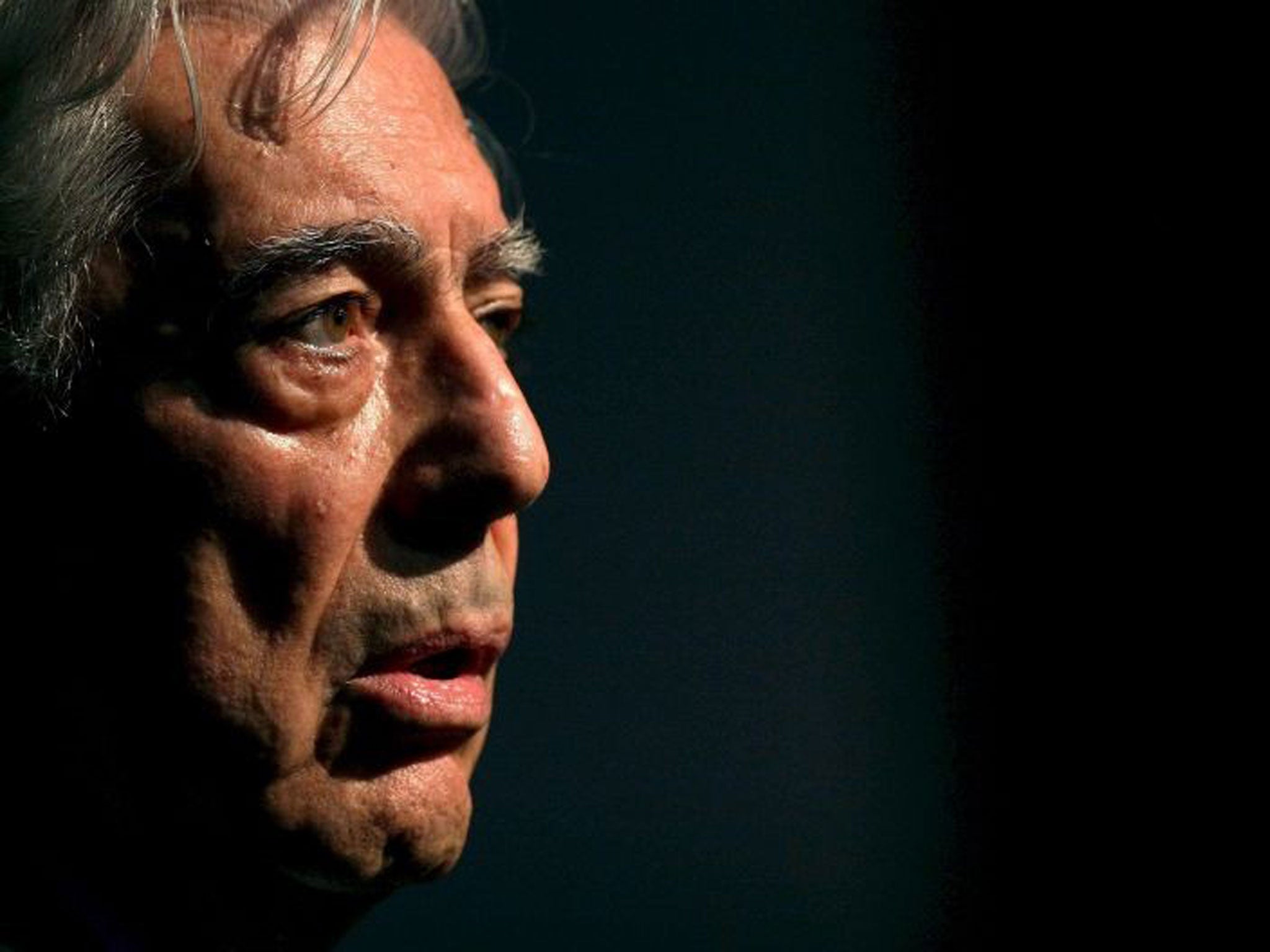The Discreet Hero by Mario Vargas Llosa, book review: Between ancient and modern
The Peruvian Nobel laureate combines soap opera with an eye for social and supernatural drama

"What stories ordinary life devised," muses one of the pair of ageing protagonists in Mario Vargas Llosa's 17th novel. "They were doubtless closer to Venezuelan, Brazilian, Colombian and Mexican soap operas than to Cervantes and Tolstoy" – but "not so far" either from Dumas, Dickens and Zola.
Peru's Nobel laureate has plenty of previous with Latin American soaps, as fans of Aunt Julia and the Scriptwriter will recall. For all his postmodern flourishes, the mystery and melodrama of a Dickens or Dumas have always attracted him as well. Hence, just a year shy of his 80th birthday, the 1st Marques of Vargas Llosa (absurdly but amusingly, he now boasts a Spanish hereditary title) bounces back into form with this cunningly wrought and thoroughly entertaining box of fictional tricks. After The Dream of the Celt, his dutiful but somewhat laborious bio-novel about the human-rights pioneer and Irish revolutionary Roger Casement, The Discreet Hero allows the Marques to let rip.
In booming Piura (a city in northern Peru), Felicito Yanaque has built up a transport company from nothing in homage to a dirt-poor father who, in his dying words, insisted: "Never let anybody walk over you, son." Down in the capital, Lima, the elegant lawyer Don Rigoberto looks forward to a cultivated retirement in his "elevated enclave" of art, music and poetry after a career spent managing the insurance business of his friend Ismael Carrera. Although divided by class and ethnicity (still, as the book reveals, an issue in this mingled nation), these two upstanding citizens have both made their mark on life and harnessed Peru's economic progress. Now they look forward to reaping the rewards.
Enter the feral younger generation, who have other ideas. Unknown extortionists demand protection money from Felicito. Then they kidnap the sweet-natured mistress, Mabel, whom he has hidden from his wife, Gertrudis. Meanwhile, the widowed Ismael has married his maidservant Armida to the dismay of the comically dreadful "hyenas": his pair of thuggish, wastrel sons. Rigoberto gets drawn into their plans for legal, or illegal, revenge.
Fathers and sons, old and young, compete and conflict in a pacey, twisty plot. Soon we enter a "labyrinth" with "more and more passageways, basement chambers, turns, and switchbacks". Once more the soapy virtuoso, Vargas Llosa has enormous fun with cliff-hangers, reveals and coincidences – and with the trademark layered dialogue in which one conversation entwines with another that a character remembers.
Beyond the inter-generational quarrels, the parallel ordeals of Felicito and Rigoberto bring into focus the traditional tensions of rank and race that endure in Peru. Ancient and modern kinds of storytelling also intersect. Rigoberto dreams of his European "fortresses of culture", an upper-class bulwark against Latin America's disorderly reality. Armida is thrilled but stunned by the fairy-tale marriage that made her life "the story of Cinderella". Both "heroes" suffer the scrutiny of sensation-hungry media that aim "to make the line between the lie and the truth disappear". Rigoberto and his wife Lucrecia sustain their marriage – another favourite Vargas Llosa turn – with erotic storytelling in bed.
Every main character must learn to distinguish between "the real and the imaginary". Older tales with a supernatural tinge intrude. Rigoberto's too-perfect son Fonchito begins to see visions of the devil – or a saint? – in the guise of a dapper gent named Edilberto Torres. For his part, Felicito puts his trust in the prophetic "inspirations" of his spiritual guide, the mulatta Adelaida.
Vargas Llosa weaves the twin plot-lines together with his customary relish, and with a flavoursome contrast between posh and popular speech captured by that master-translator, Edith Grossman. In soap-opera style, we face outright tragedy but then swerve around it like a recklessly driven truck on an Andean road. In Lima as in Piura, the "ethical man" of senior years will prevail – but at what cost? Although threaded through with Vargas Llosa's signature motifs, The Discreet Hero never seeks to climb to the heights of his masterworks, such as The War at the End of the World or The Feast of the Goat. No matter. When did a near-octogenarian Nobel Prize-winner last publish a novel as enjoyable as this?
Subscribe to Independent Premium to bookmark this article
Want to bookmark your favourite articles and stories to read or reference later? Start your Independent Premium subscription today.

Join our commenting forum
Join thought-provoking conversations, follow other Independent readers and see their replies